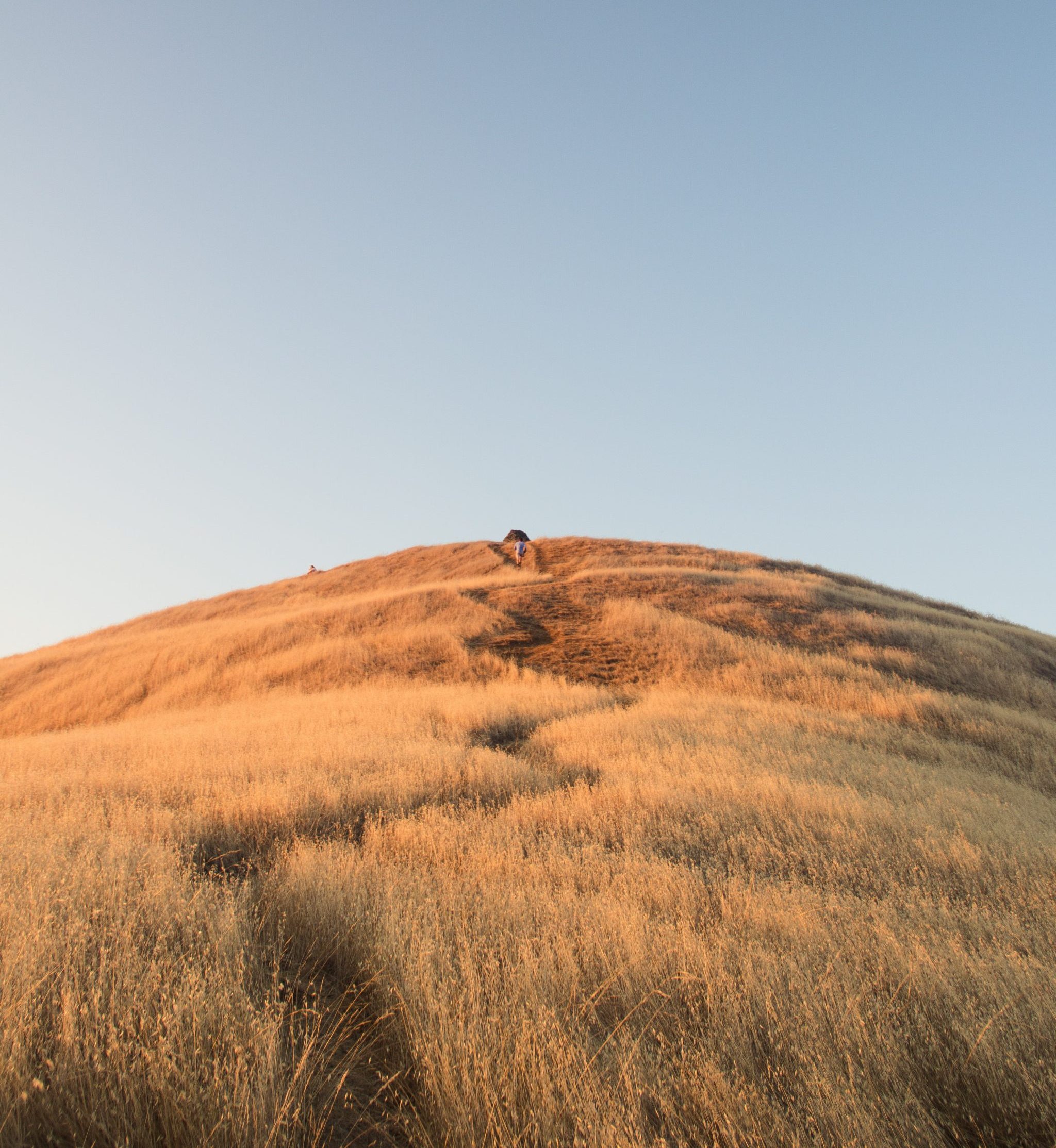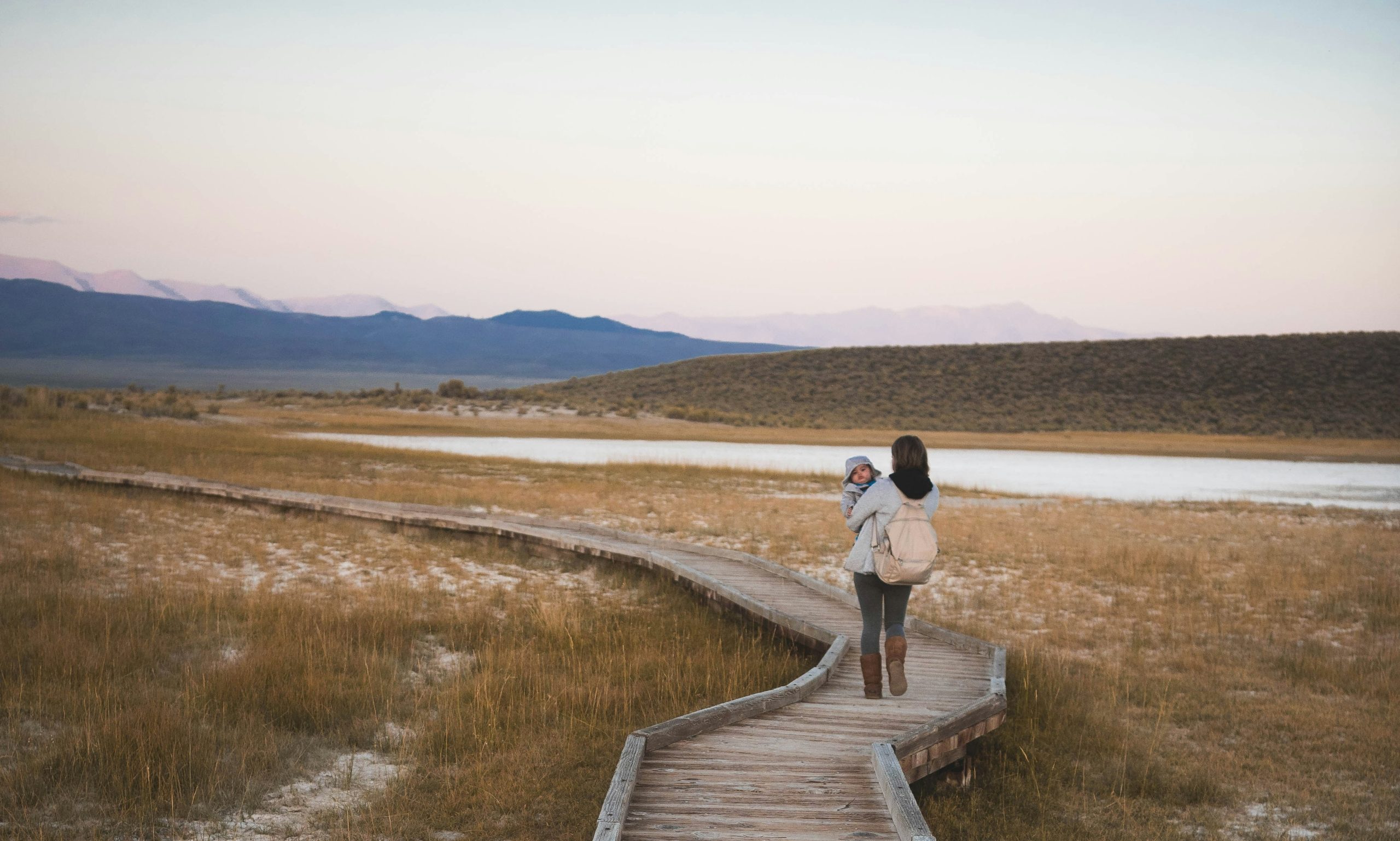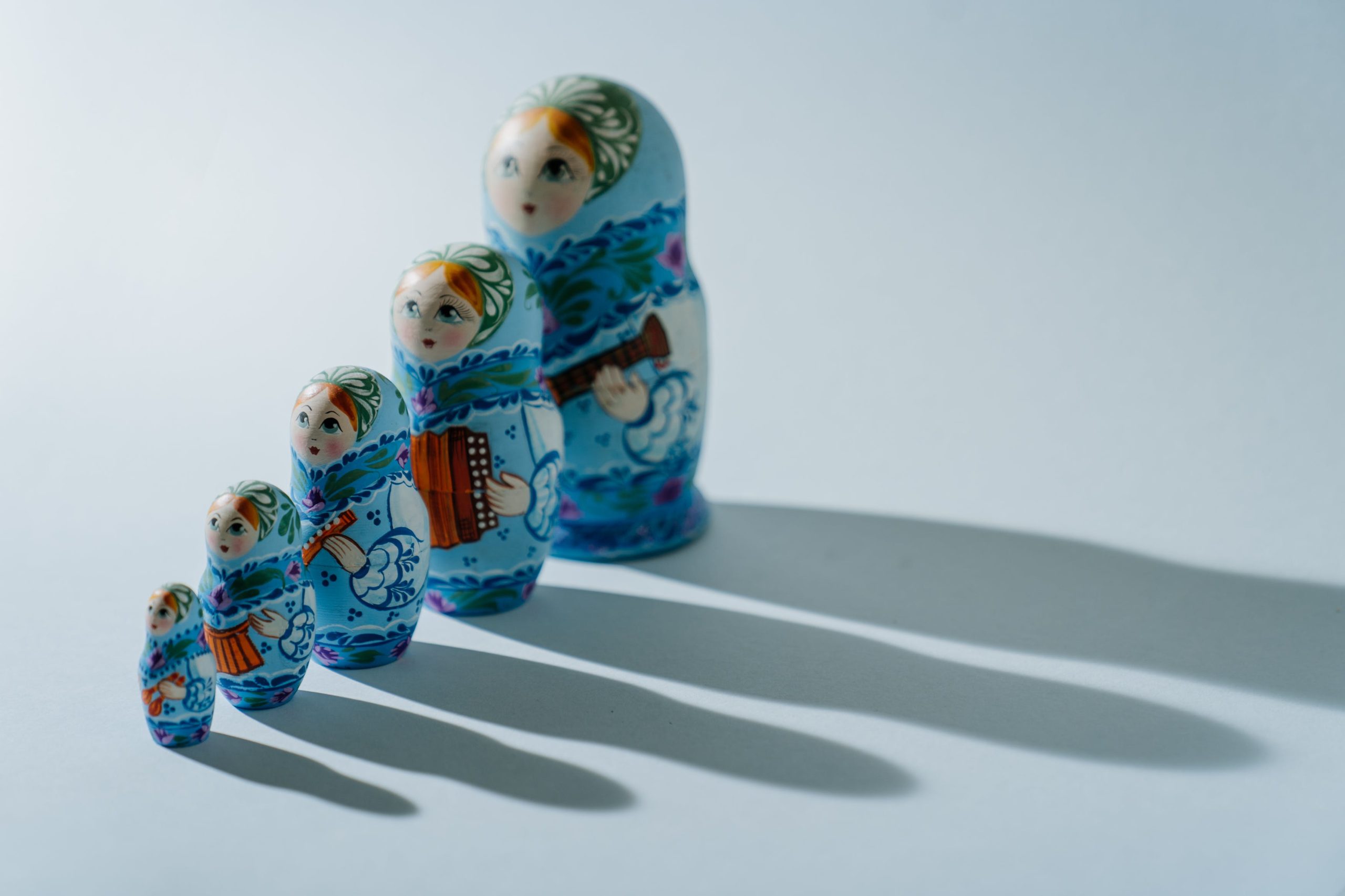Lit Mags
Improvisational Parenting in Rural Oklahoma
"Shells I" by Savannah Johnston, recommended by Erika T. Wurth

INTRODUCTION BY ERIKA T. WURTH
Savannah Johnston is a Native writer who doesn’t pull any punches.
Though Native fiction has a rich and varied history, these days it’s not so much about that one representative Indian—it is about realism (aka literary fiction). Crime. Speculative. It’s about Black Natives. Unenrolled Natives. Natives descended from or who are citizens of state or federally recognized nations. Latinx-Natives. And that’s exactly why a debut author like Johnston has the freedom to write her mean, gritty, and utterly beautiful stories. Plus, I get the feeling that Johnston is kind of a badass.

Take “Shells I” from her collection, Rites. The entire collection is brutal. Not since the late Adrian C. Louis has a Native writer (in Johnston’s case, she’s a Choctaw citizen) made it plain how important it is to show us for who we are, even if it hurts sometimes. In “Shells,” we get to know Tommy, Donna, and their newborn. Tommy’s not a bad guy, but he’s a guy who doesn’t know what the hell he’s doing: as a father, a partner, and really—in life. What I love about this story is how human it is, how much I recognize the bits and pieces: the roadhouses, the Camaros, the hilly, lush country of Oklahoma—the long dark hair paired with the search “for something beautiful about the jagged gash that ran from navel to pubic bone.” The tension, in wondering just what Tommy, a guy we’re not sure we trust, has in store for his partner and child. The strangeness—and the familiarity—in Tommy’s fascination with a large turtle shell he’s discovered. The way that Johnston alludes to something bigger in Choctaw worldview but relies on the thing that matters: these characters, their complexity, the images that haunt them, their submerged histories, poking up through the flesh of the prose just enough to leave us wondering where they’re going to go from here.
There’s something about this kind of work that will always get to me. Though I’ve moved camp to a more speculative way of looking at darkness, when you wipe the spaceships, the crime, the elves—stuff I love—out of the work, what’s underneath it all is the bare meat of the prose. And Johnston’s writing, this story in particular, and her collection in general—shines in the dark.
– Erika T. Wurth
Author of Whitehorse
Improvisational Parenting in Rural Oklahoma
Savannah Johnston
Share article
“Shells I” by Savannah Johnston
Tommy wasn’t ready to go home. It had been six days since Donna and the baby were discharged from the hospital, and the house seemed to close up around them. For nearly a week, he woke with the sun and told Donna, doped up and perpetually naked, that he was going to look for a job. He didn’t tell her that there were no jobs, or that he spent the past four days with his uncles at The Office, a roadhouse off SH-54.
Now, a little drunk and dizzy from the heat, Tommy hooked a left at the creek and headed north to Dead Woman’s Curve. The narrow strip of road weaved dangerously around the hills, earning Dead Woman’s Curve the secondary title of Dead Indian Curve, but Tommy could field the bends with his eyes closed. He’d spent a good number of years drag racing up and down the two-mile stretch; back then he had a ’71 Camaro, but he lost it to some townie from El Reno.
The truck rumbled over the bridge, and the asphalt turned to gravel. Tommy pulled off into the ditch and popped the glove box, rummaging around for the tin of pot he kept there. There wasn’t much left, but he rolled a pinner anyway, throwing open the door and starting down the dirt path to the creek. It was June, and the Oklahoma sun bore down on him with increasing intensity. His dark hair, tied back in a loose braid, burned against his scalp.
Busted cement littered the creek bed, rebar twisting out at odd angles, leftovers from when the county decided to widen the bridge. Red silt washed around the blocks, staining their sides the color of rust. Tommy used them like stepping stones, using the rebar to hoist himself across. He settled himself on the largest slab that dug into the creek’s middle at the slightest incline, took out the pinner, and struck a match. He lit the joint and took a few drags. Thick plumes of smoke descended from his nostrils as he coughed.
The creek was bordered by a dense tree line, thick with leaves and creeping ivy. The locusts thrummed, their song echoing off the underside of the bridge. A flock of barn swallows had made their mud nests all along the bridge’s lip, and the mother birds dove low before returning to their nests.
He dragged on the joint and watched the birds. After watching the swallows for a while, he reasoned it wouldn’t be too hard to build a house out of mud. The Pueblos built whole cities from adobe, carving their plots out of the hillside. His own people, the Pawnee, had been here long before the roads and oil rigs, but they were all long gone, pushed northeast past the city. Donna’s family was Cheyenne, and he knew she’d never leave Caddo County, even though they were holed up in a two-room throwback to Dust Bowl deserters on an acre of dry, red clay. They were getting by on food stamps and the charity of Donna’s parents, who owned the land and the house and who kept the electricity running. When Donna got pregnant, his uncles told him to bail, to grab his shit and run, but he didn’t. He stayed.
When Donna got pregnant, his uncles told him to bail, to grab his shit and run, but he didn’t. He stayed.
He stubbed out the joint on the slab and sat up, catching the scent of a dead animal on the wind. Ignoring it, he closed his eyes, but the smell worsened until he found himself eying the banks for its source. Upstream, moving slowly with the rippling current, was the largest turtle Tommy had ever seen. The stench blew off its shell and, from a distance, he guessed it was nearly as wide as his arms were long. Its carapace was dark green and faceted like a prehistoric, geodesic dome. As it drew closer, Tommy scooted to the slab’s edge and waited for the turtle’s carcass to drift close enough to touch. He wanted to examine his unusual find. When it was within arm’s reach, he rocked forward on his heels and tried to get a grip on the shell’s edge. It was heavier than expected and when he pulled it from the water, what could only be the turtle’s remains poured from the shell as if from a sieve. Bits of rotten flesh splashed into the water. Tommy’s stomach heaved; his first instinct was to shove the thing into the water and let it continue on its way. But on the other hand, he wanted it.
“Damn near big enough for a man in there,” he muttered between his teeth as he held his breath and, tightening his grip on the shell, shook the last of the turtle into the creek.
Once emptied, he lifted it toward the sun and peered through it. The interior of the shell was flecked with waterlogged meat, and the underside shined with scum. Appraising the path to the truck, he knew he’d have to wade the creek if he wanted to take it home.
By the time he pulled into the drive, he reeked of sweat and decay. He unloaded the shell from the truck and propped it against the house. Leaving it there, he almost skipped to the house, he was so excited. The lights were off when he went inside, and the air was stale. There was an uncapped ketchup bottle on the kitchen floor. Donna’s pain pills were on the stove, and Tommy saw that she only had a handful left. The prescription was for thirty, and her mom had filled it for her the day after her caesarean section. He unscrewed the cap and reached for one of the round, blue pills. His fingers left greasy smudges on the inside of the amber bottle, and when he popped the pill into his mouth, it tasted faintly of creek water.
A soft whine came from the bedroom. He stepped across the linoleum and stopped just short of the door. Catching himself in the hall mirror, he laughed. His hair was tangled and wild, his arms and chest smeared with dirt and sweat. He clucked his tongue and quietly pushed open the bedroom door.
“Donna?” He whispered. “Psst, Don?”
Donna lay naked on the bed, her eyes hazy with medication and the baby nestled against her thigh. Her skin was bright against the jaundiced baby’s skin. She turned down her face, glimpsing her wound, and tears ran down her face. For the first time since the operation, he looked at her abdomen; he noted the intricacies of the purple and yellow bruises that blossomed from her middle onto her wide hips like a child’s watercolor. The surgeon told him that they used 200 staples to close her up. Tommy had thought her pregnant belly was beautiful, the way it swelled outwards from her long frame and how she could balance a bowl of popcorn on its crest when they watched late-night broadcasts of Dynasty. He stood in the doorway a moment before moving to sit on the bed’s edge.
“Hey,” she whimpered. The baby kicked in its sleep. “Hey,” he said. He ran his gaze up and down her body and recalled the names he gave the freckles on her thighs— names like Emmett and Petunia, but he couldn’t remember which was which. “You alright?”
“It hurts so much, Tommy,” she said. “I didn’t think it could hurt this much.”
“You need me to get your pills?” Tommy asked hesitantly.
“I already took some, and it still hurts,” she said. A sob escaped her throat. “And it’s ugly.”
“The baby?”
“No, this.” She waved her hand angrily at her stomach. She covered her face with her hand. “This isn’t what it was supposed to be like.”
He caught himself mapping her stretch marks with his forefinger. Withdrawing his hand, he searched for something beautiful about the jagged gash that ran from navel to pubic bone. His mouth began to water, and his esophagus tightened. He looked away. “Come on, Don, I gotta surprise for you,” Tommy offered. She uncovered one eye and sniffled.
“Really?” There was a pause. “What’s that smell?”
“Not really part of your surprise, but more of a necessary evil,” Tommy said. He stood up and offered her his hands.
She shook her head. “You stink, Tommy, you should shower before you do anything else,” she said.
“Come on, it’s really neat, it’ll only take a sec,” he said. He got up and motioned for her to follow.
“Look at me.” She stayed prone on the bed. “Whatever it is, you’re gonna have to show me from here.”
“It’s outside,” he said. “I think you’ll get a real kick out of it.”
She curled an arm protectively around the baby. Her dilated eyes narrowed.
“How’d your job hunt go?” She asked.
“Same as it has for the past year,” he said. “Now come outside, I brought you something.”
“Are you even trying, Tommy?” She began to cry again.
“You know, there was a time when a man would bring something home for his wife and she wouldn’t give’im any shit, hell, she’d be happy,” he said. He paced the bedroom, suddenly angry.
“This isn’t that kind of time.”
“Damn right, it’s not. Instead, I got you bitching at me, sitting there like a gutted fish.” His voice rose, and the baby stirred next to her. She sobbed.
The pill began to kick in, and the air around him went fuzzy. His body felt tired, and guilt washed over him with the pill’s warmth. It occurred to him that Donna must feel this way, too. He turned and left her and the baby there.
Outside, flies had made a home in the shell. He took off his shirt and used it to swat away the flies. Even without his shirt, he could still smell himself, so he stripped down to his underwear. There wasn’t a neighbor for miles, and if someone made it their business to drive all the way out here, then that was their own fault. He laid his shirt, pants, and socks on the hood of the truck, looping his boot laces over the ram’s head hood ornament. The burnt summer grass crunched beneath the soles of his feet. He bent low and examined the shell closely, tracing its contours with open palms. He fingered the thin bones that held the top to the bottom and, hooking one foot with the bottom half, he tugged upwards. The bones cracked loudly.
His toes slipped on the slimy interior, and his foot slid into the shell. The protruding vertebrae scraped against his heel. Wiggling his foot free, he tried again and managed to crack the halves at their bridge. He laid the two pieces side by side.
“You musta been one old son of a bitch, huh?” he said.
The wind rocked the shell’s top. It was about half the size of those turtle-shaped kiddie pools and twice as deep. Tommy stepped inside it carefully and crouched down, bringing his knees to his chest.
“Imagine living your entire life,” he said, “then you die, and some dick desecrates your body.” Something squelched between his toes, and he stood up.
He dragged the top half to the water spigot and turned it on full blast. The water pressure worked at the remaining bits of flesh as he scrubbed at them with his bare hands. Waterlogged and rotten, it was like scraping Jell-O out of a bowl. It wasn’t difficult work, and once he washed away the meat and its accompanying slime, the shell’s interior was actually smooth and gold, like tiger’s-eye. The bottom was a different story: Strings of muscle and sinew clung tight to the bone. He scraped at it until the tips of his fingers were raw. Satisfied that the shell was as clean as he could manage, he set them back up against the house. The sun had already gone down, and though he ducked his head under the spigot’s stream, he didn’t mind the smell. It had grown on him in the evening hours.
He leaned against the truck’s grill and examined his work. The shell didn’t resemble itself like that, dismembered and laid up. Tommy tried to count the rings, the years this cavern had seen. When he was a kid, his uncles told him you could guess a turtle’s age by counting its rings, or maybe that was trees, but he tried, and anyway, his turtle’s shell was covered in blunted domes, and the rings were indistinguishable from the knobby bumps that rose out of each dome.
“You’re a right dinosaur,” he said. “Been round longer than any of us.”
As far as he could tell, there’d been no movement in the house after Donna stopped crying. Inside, things were as they had been: The ketchup was on the floor, the pills on the counter. Tommy counted them: three less than before. He saw the breast pump in the sink, leaking the last of its bounty into the drain. He put the ketchup in the refrigerator and took out a beer. The door clicked as he shut it. It was an older model, one that locked from the outside. He took a drink of his beer. A few years back, he’d seen a story on the news about a little boy who went missing a few counties over. Someone found him six months later in a junk pile a quarter mile from his house, dead inside an old fridge.
He downed the beer and went to the bedroom. Donna lay curled in a ball at the far corner of the bed, her face burrowed against the wall. She slept under a short afghan, her bare toes on pointe. Beneath the blanket, he could see she hadn’t dressed. Her arms circled her stapled stomach.
You already know it’s no use crying around here, huh
The crib was quiet at the bedside. Before the baby was born, Donna’s friends went on and on about how little sleep they’d get, but he hadn’t heard the baby cry since the hospital. Gently, Tommy reached into the crib and picked the baby up. Its head fit easily in his palm, and its feet barely touched the crook of his elbow. At the hospital, Tommy had held the baby at arm’s length, but in the bedroom, he held it close like he’d seen Donna do when she breastfed. The baby was dark, but had a shock of fine, dark hair on its crown, a few strands of white at its nape. The doctor said the white would grow out. The baby jerked in its sleep, smacking its waxy lips.
“You already know it’s no use crying around here, huh?” Tommy whispered.
He lay down with the baby on his chest. He could feel its hot breath. Suddenly he swooned for the baby, his baby, and thought about reaching out to Donna, waking her, but he couldn’t bring himself to touch her. Her body was familiar, but she was as unrecognizable as his shell. As he began to fall asleep, he moved the baby beside him and draped his arm around its tiny form.
He woke in the middle of the night to what he was sure was the sound of steam coming off Donna’s piss. From a sound sleep he heard it: The pressurized stream against the porcelain bowl, the slow hiss that made him open his eyes in the dark, wide awake. The walls thinned, and he heard her padding down the hall to the kitchen—she ran her hand along the wall, her fingernails dragging along uncovered drywall—the pill bottle rattled, the faucet ran. When Donna crawled back into bed, she tried to curl herself around him. He pulled the baby closer and scooted away from her, pretending to be asleep.
When the sun started its ascent, he woke again. Mud had flaked off his back and legs in the night, and it itched. He was aware of the raw odor that came off him in waves. Beside him, the baby yawned and slept on. Its chest rose and fell ever so slightly with each shallow breath. He clutched the baby and got up. Donna, deep in a codone slumber, he imagined, slept on. He hadn’t diapered the baby before he fell asleep, and the baby had wet the bed.
Taking the baby to the kitchen, he wet a washcloth and wiped it down. The baby’s limbs were loose, and he raised each hand twice before letting it fall. It hardly stirred as he put on its diaper. Tommy grabbed a sheet from the closet and swaddled the baby.
“You’re safe with me,” he said.
Taking the baby in his arms, he ducked outside. The storm door’s screen popped out of its aluminum frame as it swung shut, but he ignored it. He smiled when he saw his shell, dry and free of the mess that had been at its center the day before.
“This is for you, little one,” Tommy said. He set the swaddled bundle in dewy grass, within sight of the shell. “Your own little shell to keep you safe. Just a few more touches and it’s yours.”
Sitting on his knees, he took the top half of the shell in his arms and ran his fingers over its surface. Cleaned of algae and creek scum, the top was still dark green, brown veins circling each ridge. He replaced it and stood, wiping his hands on his underwear. Mud and yellowed sweat streaked the band. He hopped from one foot to the other in an effort to take them off, but he slipped, and his bare ass hit the ground with a slap. Without getting up, he glanced at the baby. Its eyes were fixed straight up at the sky.
Your own little shell to keep you safe. Just a few more touches and it’s yours.
He pushed himself up, not bothering to brush off the dirt, and retrieved a hammer and nail from the toolbox in his truck. He returned to the top half of the shell and made a mental x on the thickest section of the bridge that held the shell together. Holding the nail steady, he brought the hammer down and felt the bone give a little. He brought the hammer down again and again, the third swing falling foul and busting open his knuckle. Not thinking, he wiped the back of his bloody hand across his face, tasting blood, sweat, and dirt. He could feel his heartbeat in the nerves of his hand as he pushed the nail through. He repeated the process with the bottom half, rocking back and forth on his heels.
“One more thing,” he said. The baby was still awake, and Tommy was surprised by how blue its eyes still were. The doctor said the baby would grow out of that, too.
He rolled the shell onto its top and lifted the bottom half to it. The two holes lined up, almost perfectly. He rummaged through his toolbox until he found some baling wire; he snatched it and quickly broke off a good-sized piece. He was beginning to feel the same excitement he felt when he found the shell. Giddy, he worked fast at winding the wire through the holes, tightening his loops. He bent the twisted end around the outside of the shell: He didn’t want the sharp points on the inside.
Reunited, the shell had large gaps where its former tenant had extended its limbs. Tommy tested his hinge: The bottom half of the shell swung open and closed.
“See? I’m good for something, huh?” Tommy picked up the baby, holding it over the reconstructed shell. Holding the baby with one hand, he stroked the shell’s underbelly. The sky already shimmered with heat, and Tommy welcomed the warm morning wind that washed over them. The baby’s fists fought against its cotton wrap; it was the most he’d ever seen the baby do, and it delighted him.
“Tommy?”
Donna sounded as if she were at the end of a tunnel. She called for him again, but he didn’t want to answer.
“Shh,” he said. He rocked the baby gently. “It’s alright.”
He lifted the shell’s lid and delicately lowered the baby into it. He made sure the baby rested to the side of the bony spine and that the sheet was tucked tight around its head. He touched the baby’s lips.
“Tommy?” He heard her footsteps in the hall. “Do you have the baby?”
The baby trained both blue eyes on him and stuck its tongue out.








